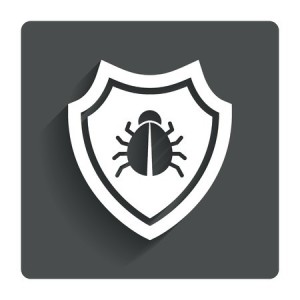
With more and more security threats present on the web, it is important to follow the proper protocol to keep your computer clean and virus-free.
As quickly as computer and network security technology advances, it always seems that the hackers are one step ahead. This is a very important field, because a company’s data can be extremely sensitive. What would happen if a list of your clients and their contact information was to end up in the hands of a competitor? What if your customer’s payment information found its way onto the black market? Obviously, this would be disastrous. Even if it’s something small, a virus can cause all sorts of issues and delays in your day-to-day operation. Here are a few tips for making sure that your company’s computers and network stay virus free.
Employee education
Employees are, surprisingly, one of the biggest holes in the security of your network. Because of this, one of the most important things you should do to make sure your data stays secure is to educate your employees on the subject. Make sure they understand the importance of strong passwords and know what one looks like. Talk to them about phishing and how e-mails that look legitimate can actually be hackers’ attempts to gain access to the system. Make sure they understand how important it is that no one else gains access to the system under their name. Whether you have classes or send memos, do whatever it takes to make sure your employees know how important it is to protect your company’s network, and what their part is in it.
Limit outside access
Many companies allow their employees to work from home. This can improve efficiency and flexibility, but usually requires that the employee has access to the company’s network from home, over the internet. Although this is not a bad idea, you should keep a close eye on who has access, and how strong your security is at that portal. Carelessly granting outside access to your system can allow people who were not intended to have access to gain it.
Anti-virus software
It may seem obvious to some, but it’s important enough to mention anyway. Anti-virus software should be your last line of defense against code that should not be on your network. Anti-virus programs can get a little annoying sometimes, but the truth is that the results of not having it are much worse. Keep in mind that, while free anti-virus software does exist, it is mostly intended for individual consumers and doesn’t do much more than the basics. If you’re running a business, it is more than worth the cost of software that will protect you and your network.
Routine audits
Every so often, perhaps every quarter or so, take another look at your network security. Consider how your employees are doing, and whether or not you feel like they’re protecting your company. Take stock of how many people have access to your network, and how safe that access is. Evaluate your anti-virus software, and decide whether or not it’s still meeting your needs. Look at all aspects of the security of your network, and make sure everything is up to your standards. It may even be a good idea to bring in a security consultant every once in a while to point out anything that you might be missing.
A major breach in your network’s security can cause major problems for the continuity of your business. In some cases, it can even lead to the business closing for good. A virus can be all that it takes for this to happen. Make sure you’re protected against this catastrophe. Not quit sure if your network is as secure as it should be? Contact us. We can answer any questions you have and make sure everything is in order.


